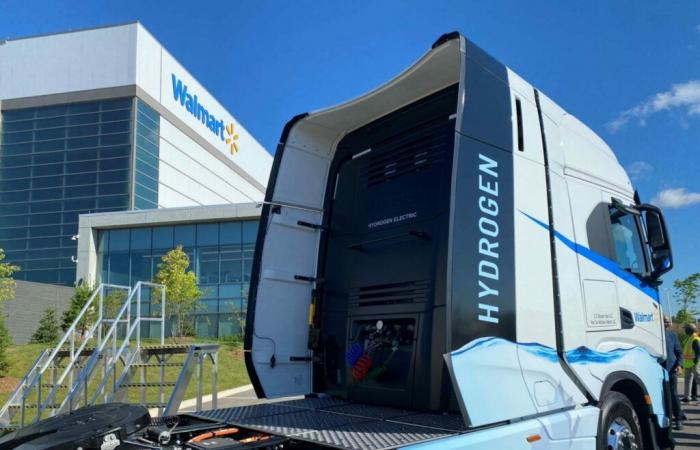A year ago, there was hope that 2024 would see an end to a lingering recession in the trucking sector and a return to more prosperous times for the industry. It was hoped that capacity would rebalance against freight demand and that rates would improve.
It was hoped that inflation would be controlled and trucking costs would stabilize or even decline. It was hoped that the government would seriously address the issue of driver misclassification and restore fairness to the market.
In this context, it is difficult to describe 2024 as anything other than a disappointment for most in the sector. However, the trucking industry has also shown resilience in 2024. And better times certainly lie ahead.
Here is my assessment of an unforgettable, even painful, year. I also ventured to make some bold predictions about how each of these topics will evolve in 2025. But don’t hold that against me.
The Great Trucking Recession Continues
2024 was a tough year for the trucking industry, as it was marked, from start to finish, by a two-year freight transportation recession. But was it really a freight recession? Eric Starks, president of FTR, said at the organization’s annual conference that it was more of a “rate recession.”
Freight has been steady, if unspectacular. But where the problem lies is the excess capacity that has stubbornly persisted throughout the year, combined with the rapid increase in operating costs. Bob Costello, chief economist for the American Trucking Associations, described this situation as a “stagflation” environment, in which rates fall at the same time as costs rise. “It’s a terrible situation,” he admitted.
However, in its highly anticipated fall economic outlook, it predicted a return to a more “normal” operating environment in 2025. You’d be forgiven for not popping the champagne for a “normal” forecast, but after two consecutive years of difficulty, fleets are unlikely to complain if we return to a pre-Covid type environment.
Forecast for 2025 : Trucking conditions can’t get worse, so they must get better
Pride’s empire collapses
The most notable casualty of the trucking industry recession was Pride Group, which filed for creditor protection in late March. The bankruptcy proceedings lifted the veil on a vast and complex organization whose tentacles seemed to extend to every aspect of the sector.
Sale of trucks and trailers. Factoring. Real estate. Road transport and logistics. Sale of electric vehicles. Pride entities were involved in all of this.
Nine months later, assets belonging to Pride Group Entities continue to be dispersed among creditors. However, and not without controversy, the transport and logistics entity known as Pride Group Logistics was sold back to the founding Johal family, who presented the only offer allowing the sale of the transport company with a view to continuity of operation.
Forecast for 2025 : Name change to Pride Group Logistics
L’immigration
In recent years, the federal government has taken a determined stance on increased immigration, and few industries have been hit harder than trucking. Despite two years of recession in the freight sector and a shortage of good-paying jobs in the sector, the federal government has issued a record number of Labor Market Impact Assessments (LMIAs) for truckers.
This is an invitation to fraud. Our sister publication, TruckNews.com, spoke with foreign truck drivers who were illegally forced to pay for the LMIAs that brought them here. In some cases, they were beholden to the companies that provided them with these LMIAs and were forced to work illegally. Some had their salaries withheld or were shortchanged, while others were not paid at all. Wage theft became a problem, and truckers organized to protest such activities.
A sudden proliferation of new truck driving schools, particularly in Ontario, emerged as schools sought to profit from the influx of new drivers. Today, faced with strong criticism of its management of immigration, the Liberal government is trying to put toothpaste back in the tube with reforms that will reduce the influx of foreign students and temporary workers.
The rollback of some of these immigration policies has left driving schools with empty classrooms and spawned promotions in hopes of not closing the books. (We’ve even heard of a “Black Friday Sale” offering MELT training for $3,000). This problem will persist until 2025 and probably beyond.
Prediction for 2025 : A new Conservative government will try to clean up Trudeau’s mess, but it won’t be easy.
Driver Misclassification Continues…and Expands
No industry event, no roundtable could take place in 2024 without revisiting the controversial topic of driver misclassification, also known as Driver Inc. The feds appear unwilling to address this practice, which involves classifying company drivers as independent contractors (which they are not) so that fleets can offload tax burdens so that the drivers pay them (which they don’t).
According to the Canadian Trucking Alliance, this situation costs the Canadian economy billions of dollars in unpaid taxes and gives outlaw carriers a market price advantage of up to 30%.
The crisis has gone beyond Ontario’s borders and spread to other provinces. Quebec has notably adopted a firm position on the issue over the past year, with the Quebec Trucking Association (ACQ) adding its voice to all those decrying this practice. Yet federal authorities appear reluctant to step in and crack down, preferring to take an educational approach rather than harsh sanctions that would completely quell the problem.
Forecast for 2025 : Always the same thing. Some provincial victories may be in sight, but federal authorities have done little more than offer lip service to suggest they are ready to step in to meaningfully enforce the legislation.
Trucking gets cleaner, but challenges arise
The Canadian trucking industry has continued to become greener over the past year. Canada has proven to be one of the key markets for Volvo’s VNR Electric, a battery-powered truck with no tailpipe emissions.
The first Nikola trucks running on hydrogen have been deployed in Canada, and private fleets with strong ambitions in terms of sustainable development have adopted them. But the move towards zero emissions has not been without its problems.
Electric vehicle adoption has been slower than expected for Canadian startup Vicinity Motor Corp. and Lion Électrique having requested protection from their creditors and/or having gone into receivership. The lack of publicly available charging infrastructure for heavy-duty trucks persists, and range and payload limitations continue to make these vehicles a niche product that is only suitable for a fraction of roads and roads. loads that Canadian truckers use and transport.
Worse, a popular, apparently too popular, incentive program in Quebec ran out of money and was suspended, leaving dealers with inventories that are now proving difficult to sell and electric trucks commanding prices that fleets cannot. simply cannot afford without the promised incentives. The election of Donald Trump to the presidency south of the border has also raised questions about whether to maintain aggressive environmental regulations that are forcing the industry to shift to zero-emission vehicles.
Forecast for 2025 : Private fleets will continue to invest in zero-emission trucks. For-hire fleets will focus more on renewing their diesel fleets ahead of costly EPA27 emissions standards that will see truck prices rise by US$20,000 or more.







